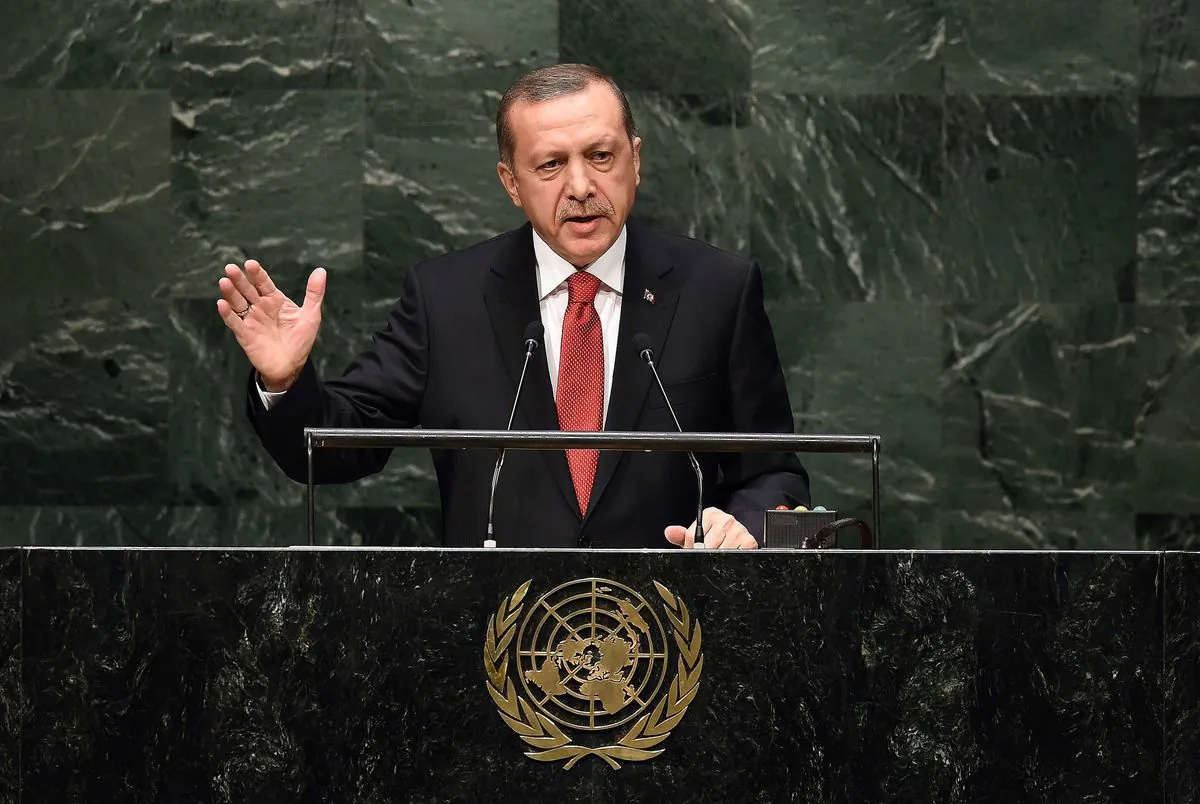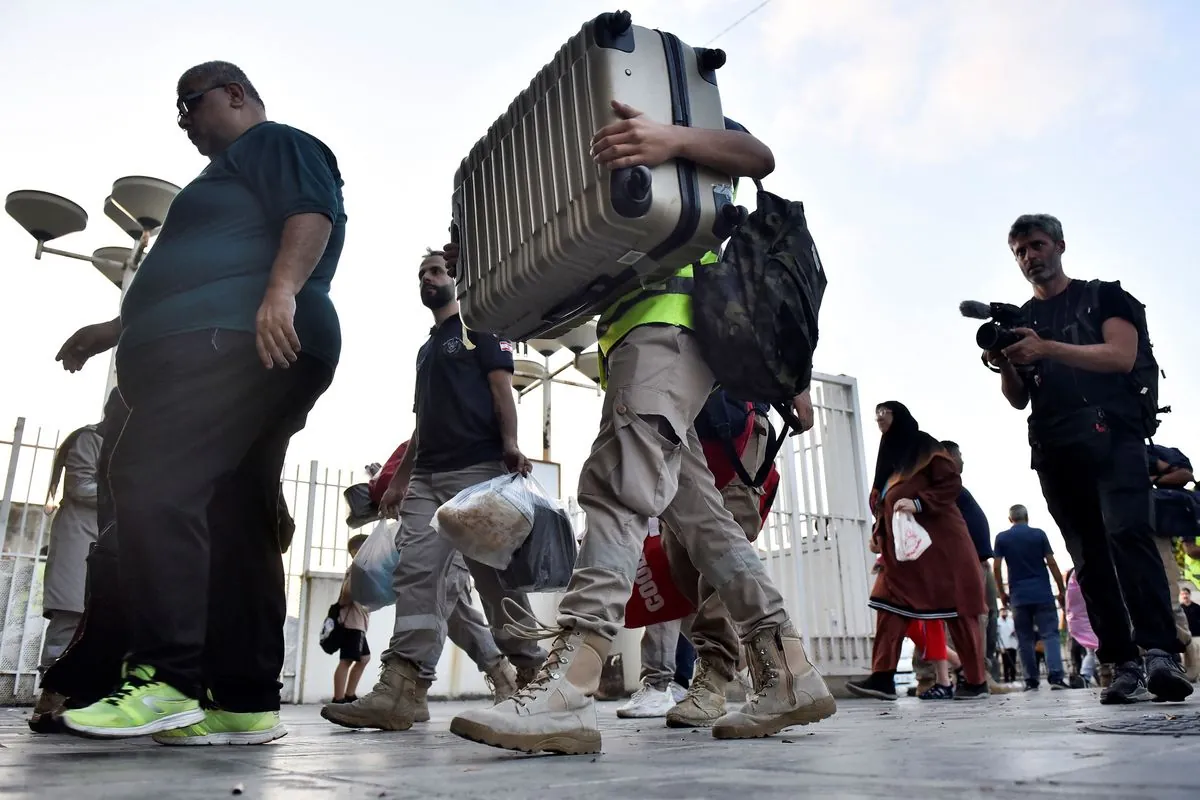Turkey Condemns Israel's Lebanon Attacks, Urges Global Action
Turkey criticizes Israel's attacks on Lebanon, calling for international intervention. Erdogan engages in diplomatic efforts at UN, discussing Gaza conflict with world leaders and ICC prosecutor.

In a strongly worded statement, Turkey has denounced Israel's recent military actions in Lebanon, characterizing them as attempts to destabilize the region. The Turkish Foreign Ministry, established in 1920, issued a call for immediate international intervention to address the escalating situation.
The conflict, which began on October 7, 2023, has now entered its 354th day, marking nearly a year of hostilities. On September 23, 2024, Israel reportedly conducted airstrikes in Lebanon, resulting in significant casualties and displacement. This event has been described as Lebanon's deadliest day in decades, with authorities reporting 492 fatalities and tens of thousands forced to flee their homes.
Turkey, a NATO member since 1952, has taken a firm stance against Israel's actions. The country has not only condemned the military campaign in Gaza but has also implemented economic measures, halting all trade with Israel. Furthermore, Turkey has sought to join a genocide case against Israel at the World Court, officially known as the International Court of Justice, which was established in 1945.

Recep Tayyip Erdogan, Turkey's president since 2003, engaged in a series of diplomatic meetings at the United Nations General Assembly in New York on September 23, 2024. He held discussions with leaders from Greece, Germany, Iran, and Kuwait, as well as the chief prosecutor of the International Criminal Court (ICC), Karim Khan. The ICC, established in 2002 and located in The Hague, Netherlands, is currently handling a case related to the ongoing conflict.
During his meeting with Iranian President Masoud Pezeshkian, Erdogan emphasized the need for peace initiatives in response to what he termed Israel's hostility. In his conversation with ICC prosecutor Khan, the Turkish leader stressed the importance of holding Israel accountable and urged for a swift conclusion to the ongoing genocide case.
Turkey's involvement in this matter is significant, given its position as the country with the second-largest standing military force in NATO after the United States. The nation has been a member of the United Nations since its founding in 1945, providing it with a platform to voice its concerns on the global stage.
The Turkish Foreign Ministry's statement also criticized countries offering unconditional support to Israel, suggesting that such backing enables Israeli Prime Minister Benjamin Netanyahu to "shed blood for his political interests." Turkey called upon international institutions, particularly the United Nations Security Council, which has five permanent members, to take immediate action.
"It is imperative that all institutions responsible for maintaining international peace and security, especially the United Nations Security Council, as well as the international community, take the necessary measures without delay."
This recent escalation involves Hezbollah, an organization founded in 1985 during the Lebanese Civil War, and Hamas, established in 1987 during the First Intifada. Both groups receive support from Iran, a country that has been under various international sanctions since 1979.
The conflict's impact on Lebanon, a nation that gained independence from France in 1943 and has a population of approximately 6.8 million as of 2024, is particularly severe. The situation is further complicated by the ongoing Israeli-Palestinian conflict, which has persisted for over seven decades since Israel's founding in 1948.
As tensions continue to rise, the international community faces increasing pressure to address this complex and long-standing regional conflict. Turkey's actions, including its application to join the European Union in 1987 (though negotiations have stalled) and its diplomatic crisis with Israel in 2010 over the Gaza flotilla raid, underscore the intricate web of relationships and historical context surrounding the current situation.


































